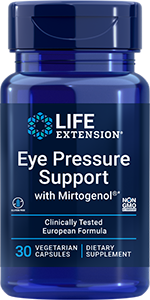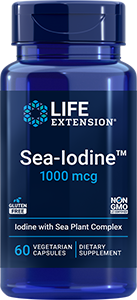
Newsletter
Newsletter
Studies suggest positive role for selenium in diabetes, endothelial function, longevity

April 21, 2020
Recent research findings continue to affirm the benefits of the trace mineral selenium in human health.
In a study reported on December 22, 2019 in the journal Cureus, 92 smokers who were being treated with oral medications for type 2 diabetes were given 200 micrograms of selenium daily for six months. The participants followed a Mediterranean diet and maintained a steady body mass index throughout the course of the study. Blood samples were collected and analyzed for fasting glucose, hemoglobin A1c (HbA1c), total cholesterol, high-density lipoprotein (HDL), low-density lipoprotein (LDL) and triglycerides at the beginning of the study and three and six months following the initiation of selenium supplementation.
Glucose, HbA1c and total and LDL cholesterol were reduced at three and six months and HDL levels were higher at six months. “The present study enforces the claims concerning the multiple benefits of selenium as a dietary supplement in patients with type II diabetes under the prerequisite of following the Mediterranean diet as the recommended treatment method,” author Dimitrios T. Karalis wrote. “Even though the present research is at an early stage, we could suggest that selenium constitutes a necessary dietary supplement.”
Another study, published in the April 2020 issue of Environmental Toxicology and Pharmacology, examined the relationship of selenium, zinc and total antioxidant status with endothelial function, which becomes impaired during the development of atherosclerosis and hypertension. Among 141 men and women with high blood pressure, those whose serum selenium concentrations were below the median level exhibited significantly lower flow-mediated dilatation of the brachial artery (an assessment of endothelial function) than those whose selenium values were at or above the median. Below-the-median total antioxidant status was also associated with a decrease in flow-mediated dilation. Analysis of the data determined that higher serum selenium levels are independent predictors of higher total antioxidant status and that serum selenium predicts endothelial function with greater accuracy than total antioxidant status.
Finally, research reported on January 31, 2020 in Clinical Nutrition indicates that greater selenium intake is associated with longer telomeres, which are segments of genetic material that cap and protect the end of chromosomes. Longer telomeres have been associated with increased cellular lifespan and may be an indicator of younger biologic age.
The study included 3,194 men and women who participated in the National Health and Nutrition Examination Survey (NHANES) from 1999 to 2000 and 2001 to 2002. Selenium intake was determined from responses to dietary recall interviews. Each 20 microgram increase in the intake of selenium was associated with a 0.42% increase in telomere length. Further analysis found the effect to be stronger among women and participants who were not obese.
“Given that increased oxidative stress is believed to play a key role in telomere attrition, selenium as an antioxidant mediated by selenoproteins could decrease the oxidative stress and accumulation of cellular damage induced by reactive oxygen species (ROS), which might be propitious to preserve telomere length,” wrote Yanling Shu and colleagues. “Besides that, in the process of inflammation, the rapid immune cell replication increased the rate of telomere attrition, and selenium or antioxidant selenoproteins are known to prevent excessive immune responses through modulating differentiation and function of immune cells, which suggests more selenium intake may be beneficial to reduce the telomere attrition induced by inflammation.”
These studies emphasize positive and diverse roles played by this essential mineral which, while of large importance, is needed in miniscule amounts.
Products
Apply What You’ve Learned: Selenium
- Named for the goddess of the moon, selenium was found to be essential to mammalian health over half a century ago.1
- While selenium is abundant in the soil of some areas of the world, other areas have low levels, resulting in similarly decreased levels in produce and animals raised in these regions.2
-
By protecting a type of white blood cell known as neutrophils from free radical damage, glutathione peroxidases (which contain selenium) help support the immune system.3
- Another way selenium may help support immunity is by reducing the risk of certain viruses to mutate and become more pathogenic after they invade the body.4
References
-
Majeed M et al. Nutracos.2005;1:6-8.
-
National Research Council (US) Subcommittee on Selenium. Selenium in Nutrition: Revised Edition. Washington (DC): National Academies Press (US); 1983. 3, Distribution. Available from: https://www.ncbi.nlm.nih.gov/books/NBK216733/
-
Arthur JR et al. J Nutr. 2003 May;133(5 Suppl 1):1457S-9S.
-
Beck MA et al. Proc Nutr Soc. 1999 Aug;58(3):707-11.
Brain Health Supplement Guide
By answering a few simple questions, we will help you choose the brain health supplements that are right for you.
What's Hot
Health Concern
Increased selenium intake associated with lower osteoporosis risk
A study reported in BMC Musculoskeletal Disorders on December 4, 2019 found a reduced risk of osteoporosis among older individuals with a greater intake of the mineral selenium in comparison with those whose selenium intake was lower.
Diabetes and Glucose Control
Diabetes mellitus is characterized by high levels of glucose in the blood. Type 2 diabetes is far more common than type 1 diabetes and is mainly caused by resistance to the effects of the hormone insulin, which facilitates removal of glucose from the blood.
Related Life Extension Magazine® Articles
Live Forever . . . ish
Join Dr. Mike and Dr. Crystal as they sit down with some of today’s leading medical, health, and wellness experts to discuss a variety of health-related topics. From whole-body health to anti-aging and disease prevention, you’ll get the latest information and helpful advice to help you live your life to the fullest.
Current topics include “Our Top Picks for Scientifically Proven Diets,” “Curbing Cravings with Serotonin, “Spicing Up Your Healthy Life,” and many more!










